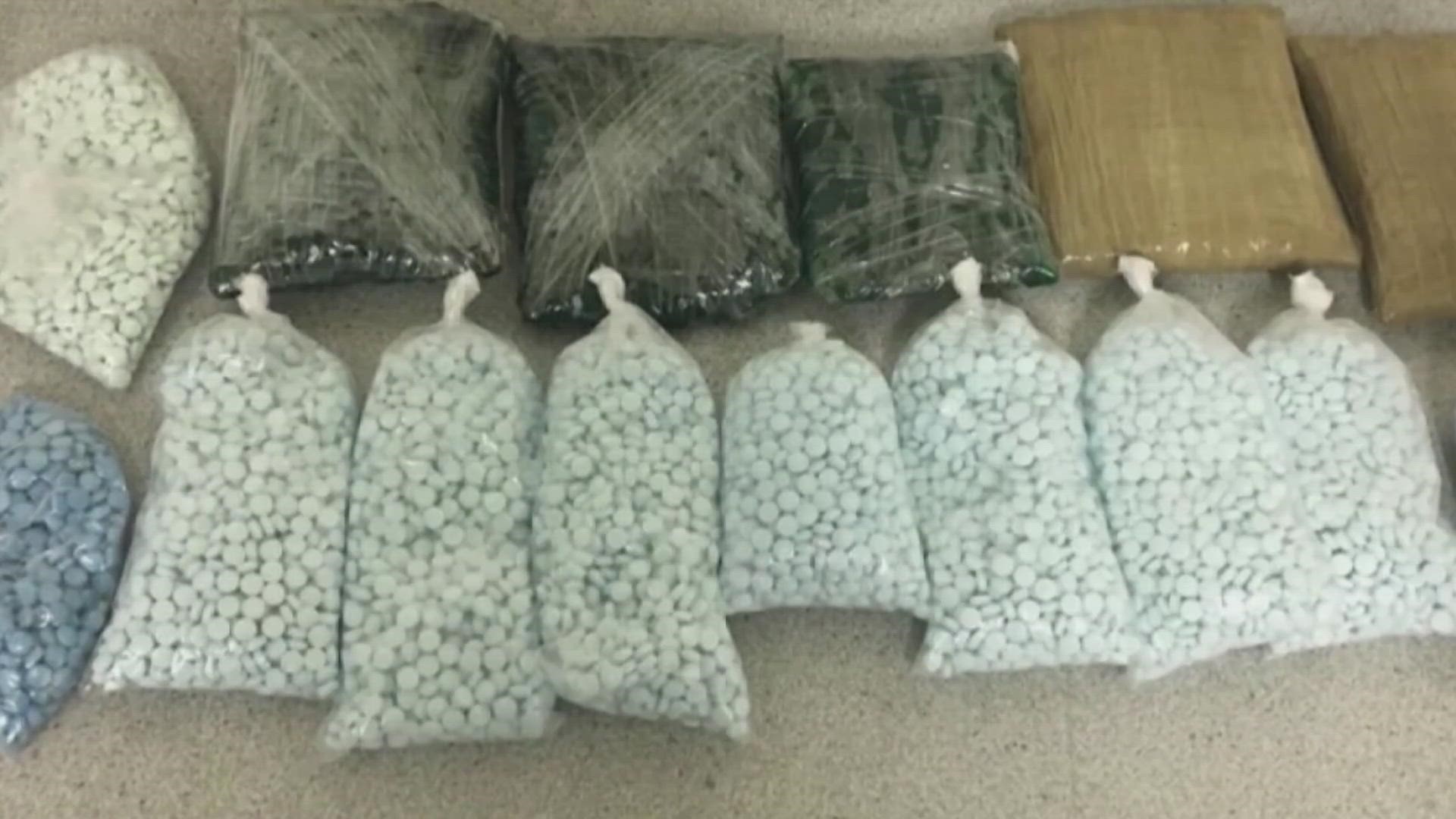SEATTLE — The King County executive says lives are being lost at an alarming rate because of fentanyl. The King County Sheriff’s Office does have a special emphasis unit that is going after drug dealers. While that unit’s work is paying off, the county is still facing serious challenges when it comes to fentanyl.
In 2022, the King County Sheriff’s Office seized a sizeable number of drugs with a street value of $17.5 million, according to King County Executive Dow Constantine.
"Thirty pounds of fentanyl powder, 755,000 pills, and a whole bunch of guns and our money associated with that,” said Constantine.
When asked how much last year’s drug busts impacted the supply on the street, Undersheriff Jesse Anderson called it "a small dent."
"This is killing people instantaneously on some occasions,” said Anderson.
"This drug is very cheap. It's 50 times the potency of heroin. So, it is very easy for someone to overdose,” said Constantine.
The data behind King County's death toll shows a sharp rise with nearly 699 fentanyl-involved deaths last year.
"This is a totally different ballgame, and it's uncontrolled. And the people who are selling this, they don't care. They don't care about lives. They only care about making money,” said Anderson.
From the end of 2021 to the end of 2022, the Drug Enforcement Administration's Seattle Field Division office recorded a 117% increase in fentanyl seizures.
However, the undersheriff said the supply of fentanyl flooding into King County does not appear to be slowing down.
"We have 13 detectives essentially that are working on this in King County, which is a small number. We'd love to have more, but we also have a staffing crisis right now,” said Anderson.
The sheriff's office is working to recruit deputies to fill a hundred vacancies and combat the fentanyl crisis at the same time.
"We work with our federal partners as well, but they can only take on so many because they also have staffing limitations,” said Anderson.
Constantine said that dealing with this problem requires a coordinated approach since narcotics move across county, state, and national borders.
"This is a very frightening prospect for us, and we are very focused on getting this stuff off the streets,” said Constantine.

